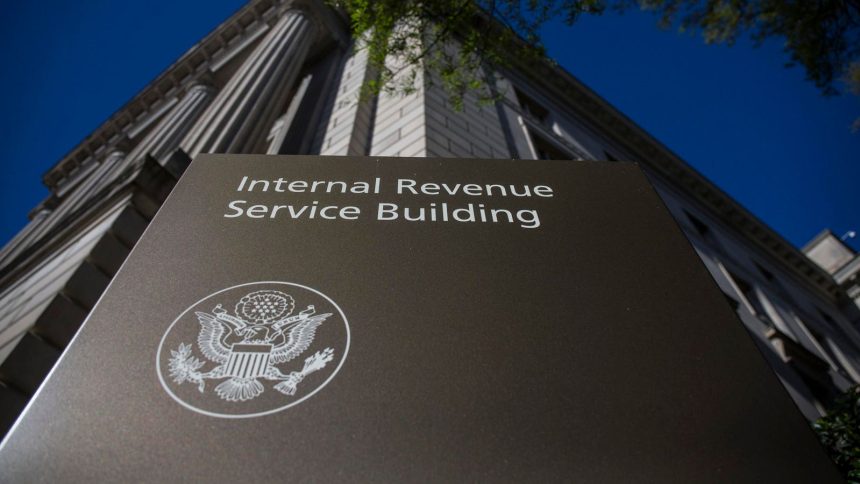Puerto Rico’s legislature passed Act 22 in 2012, according to critics in Congress, “to attract wealthy foreigners and mainlanders to Puerto Rico by offering generous tax-related benefits.”
“For instance,” they add, “after earning Puerto Rican residency status, individuals pay zero taxes for all Puerto Rico-source income, dividends and interests, and capital gains.”
According to the IRS, Puerto Rico’s Department of Economic Development and Commerce (DDEC) granted Act 22 benefits to 2,331 individuals between 2012 and 2019. Information past 2019 does not appear to be publicly available. (Act 22 became part of Act 60 of 2019.)
In late 2021, the IRS announced an audit “campaign” regarding individuals claiming the benefit of Act 22. This move was part of a larger campaign program the IRS’ Large Business & International Division launched in 2017 with the stated premise of “moving toward issue-based examinations” that “require a response in the form of one or multiple treatment streams to achieve compliance objectives.” The IRS’ focus on Act 22 is one of forty eight current campaigns addressing “taxpayer noncompliance related to unreported income, undisclosed assets, or any other tax avoidance scheme.”
According to the IRS, the Act 22 campaign “addresses taxpayers who have claimed benefits through Puerto Rico Act 22, ‘Act to Promote the Relocation of Individual Investors to Puerto Rico’, without meeting the requirements of IRC Section 937, Residence and Source Rules Involving Possessions. As a result, these individuals may be excluding income subject to U.S. tax on a filed U.S. income tax return or failing to file and report income subject to U.S. tax. This campaign will also address those individuals who have met the requirements of IRC Section 937 but may be erroneously reporting US source income as Puerto Rico source income in order to avoid US taxation.”
Much has been written about the Act 22 program, and most of it focuses on the residency issue. To qualify for Act 22 benefits, one must be a bona fide resident of Puerto Rico. Tax agencies are quite adept at assessing residency, and the IRS in particular (given its summons powers) may have access to reams of information that could be relevant to determining whether someone is actually residing in Puerto Rico.
Much less has been written about the second issue that the IRS identified as a possible concern – those people who qualify as residents of Puerto Rico but who may be “reporting U.S. source income as Puerto Rico source income.” As a general matter, “rules similar to the rules for determining whether income is income from sources within the United States or is effectively connected with the conduct of a trade or business within the United States shall apply for purposes of determining whether income is from sources within” Puerto Rico. In some cases, that is straightforward. For example, income for services rendered is sourced where the service was provided, although even that can get complicated when the service is performed partially in both places, or if the services are rendered through an entity structure.
As a general rule, a Puerto Rico resident’s capital gains are sourced to Puerto Rico, but there are rules that are designed to preclude U.S. taxpayers with appreciated assets from avoiding U.S. income tax on the growth by becoming a resident of Puerto Rico. Those rules are quite complicated and beyond the scope of this article but will obviously be an issue in IRS audits of capital gain reporting.
What has come of the IRS Act 22 campaign? In July 2023, the IRS announced that it had “recently identified about 100 high-income individuals claiming benefits in Puerto Rico without meeting the residence and source rules involving U.S. possessions. These wealthy individuals are attempting to avoid U.S. taxation on U.S. source income, and we expect many of these cases to proceed to criminal investigation.”
On November 17, 2023, a group of 13 members of Congress wrote IRS Commissioner Werfel expressing their concerns with “the continuing tax avoidance by beneficiaries” of the tax break. More recently, the New York Times reported on May 28, 2024, that an IRS-affiliated whistleblower wrote to lawmakers that the IRS “has audited barely two dozen people and has collected back taxes from none.” That seems to have prompted the U.S. Senate Committee on Finance to schedule a private briefing with the IRS later this month to discuss the IRS’ efforts to curb abuse of the tax benefits in Puerto Rico, as reported in Tax Notes and elsewhere. According to a separate report in Bloomberg, the IRS has responded with plans to “deploy a team of additional agents and open audits of individuals” claiming the tax break.
The number of taxpayers who have relocated to Puerto Rico is small enough that any increased IRS scrutiny could materially affect their chance of an audit. Taxpayers who played by the rules should have nothing to fear, other than the burden of responding to IRS requests for information and proving their case. Taxpayers who played a little closer to the line should evaluate the strength of their reporting positions. Where that analysis results in significant concerns, they should consider self-correcting tax filings before a possible tax audit. The most aggressive taxpayers should consider consulting with a criminal tax attorney. Cases vary depending on their facts, but as a general rule taxpayers who crossed the line but who proactively seek to get tax compliant are treated far more leniently than those who do not.
Disclosure: Although I used to be part of IRS leadership, I now represent taxpayers in IRS matters and I hope that you find the information in this article helpful. Please note, however, that the article is informational only. It does not create an attorney-client relationship, and you should not rely on it for legal advice.
Read the full article here
















